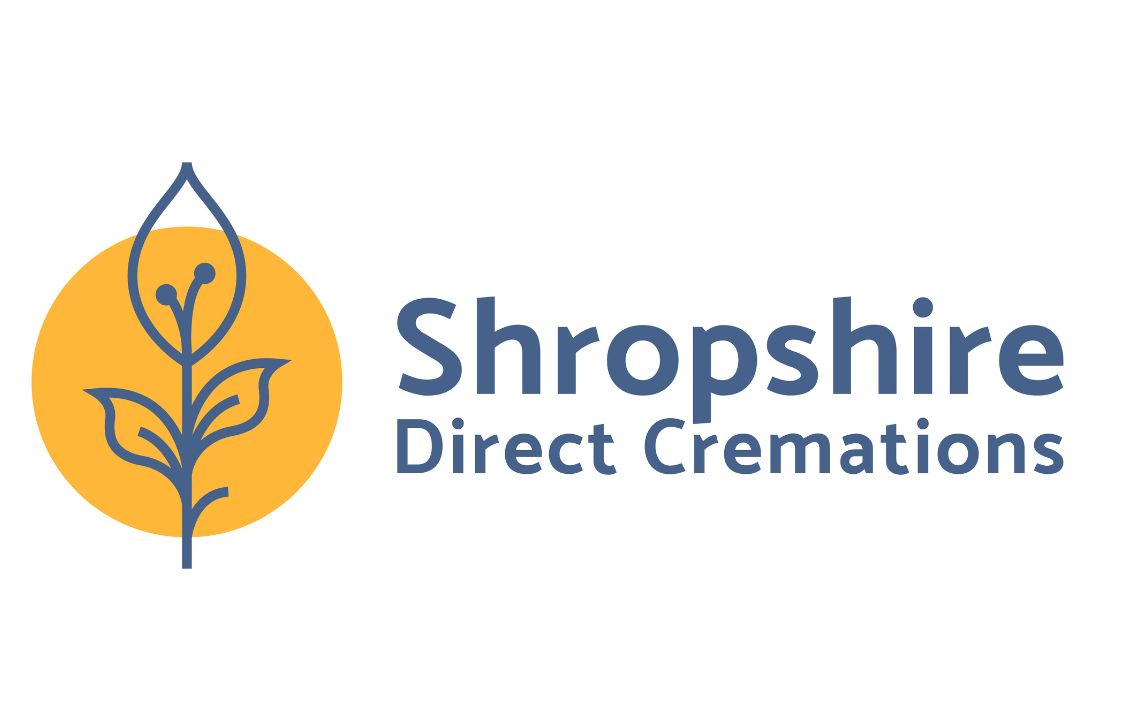
A Guide from Shropshire Direct Cremation
Losing a loved one is one of the most difficult experiences you will face and understanding what to do next can help ease some of the stress. As of 9th September 2024, new UK regulations regarding the certification of death have come into effect. This guide provides a step-by-step process of what you need to do when someone passes away under these updated guidelines.
1. Notify the Relevant Authorities
-
At Home
If the death occurs at home, you should contact the deceased’s GP or call 111 if it's outside regular hours. They will advise you on the next steps.
-
In a Hospital or Care Home
If the death occurs in a hospital or care home, the staff will handle the initial steps and direct you on what to do next.
2. Contact a Funeral Director
Once the death is reported, your next step is to contact a funeral director. At Shropshire Direct Cremation, we are here to guide you through the process, offering support and helping you manage the necessary steps and paperwork during this difficult time. Rest assured, we handle all arrangements personally, not through a call centre, so your loved one stays local and in caring hands.
3. Death Certification Review Process
Under the new regulations, a Medical Examiner will now review the circumstances of the death before issuing a death certificate. Here’s what happens:
-
Medical Examiner’s Role
The Medical Examiner reviews medical records and consults with the attending doctor. They will either sign the death certificate or refer the case to a coroner if necessary.
-
Doctor or Coroner Decision
The Medical Examiner decides if the attending doctor can sign the certificate or if further investigation by a coroner is required.
4. Registering the Death
Once the death certificate is issued, the death must be registered. In England and Wales, this should be done within five days. To register the death, you will need:
-
A medical certificate stating the cause of death.
-
Personal details of the deceased, including their full name, date and place of birth, last address, and occupation.
-
Details of the spouse or civil partner (if applicable).
5. Arranging the Funeral
After registering the death, you can begin making funeral arrangements. Shropshire Direct Cremation will assist you with all legal requirements and ensure that the funeral reflects the wishes of your family and loved one. Our services include dignified direct cremations, with all cremations taking place at Emstrey Crematorium. You’ll receive your loved one’s ashes within five working days.
6. Handling Legal and Financial Matters
-
Notifying Institutions
Contact banks, insurance companies, utility providers, and other relevant organisations to inform them of the death. You may need to provide copies of the death certificate.
-
Wills and Probate
If the deceased had a will, contact the executor to begin the probate process. If there is no will, the estate will be handled according to intestacy laws.
7. Seek Support
Grief is a challenging process, and you don’t have to go through it alone. Seek support from friends, family, or professional grief counsellors. There are many organisations in Shropshire that offer bereavement support.
1. Notify the Relevant Authorities
-
At Home
If the death occurs at home, you should contact the deceased’s GP or call 111 if it's outside regular hours. They will advise you on the next steps.
-
In a Hospital or Care Home
If the death occurs in a hospital or care home, the staff will handle the initial steps and direct you on what to do next.
2. Contact a Funeral Director
Once the death is reported, your next step is to contact a funeral director. At Shropshire Direct Cremation, we are here to guide you through the process, offering support and helping you manage the necessary steps and paperwork during this difficult time. Rest assured, we handle all arrangements personally, not through a call centre, so your loved one stays local and in caring hands.
3. Death Certification Review Process
Under the new regulations, a Medical Examiner will now review the circumstances of the death before issuing a death certificate. Here’s what happens:
-
Medical Examiner’s Role
The Medical Examiner reviews medical records and consults with the attending doctor. They will either sign the death certificate or refer the case to a coroner if necessary.
-
Doctor or Coroner Decision
The Medical Examiner decides if the attending doctor can sign the certificate or if further investigation by a coroner is required.
4. Registering the Death
Once the death certificate is issued, the death must be registered. In England and Wales, this should be done within five days. To register the death, you will need:
-
A medical certificate stating the cause of death.
-
Personal details of the deceased, including their full name, date and place of birth, last address, and occupation.
-
Details of the spouse or civil partner (if applicable).
5. Arranging the Funeral
After registering the death, you can begin making funeral arrangements. Shropshire Direct Cremation will assist you with all legal requirements and ensure that the funeral reflects the wishes of your family and loved one. Our services include dignified direct cremations, with all cremations taking place at Emstrey Crematorium. You’ll receive your loved one’s ashes within five working days.
6. Handling Legal and Financial Matters
-
Notifying Institutions
Contact banks, insurance companies, utility providers, and other relevant organisations to inform them of the death. You may need to provide copies of the death certificate.
-
Wills and Probate
If the deceased had a will, contact the executor to begin the probate process. If there is no will, the estate will be handled according to intestacy laws.
7. Seek Support
Grief is a challenging process, and you don’t have to go through it alone. Seek support from friends, family, or professional grief counsellors. There are many organisations in Shropshire that offer bereavement support.

Coroner Involvement
A coroner may need to be involved if the cause of death is unknown, the deceased wasn’t seen by a doctor during their final illness, or the death was sudden or suspicious. In such cases, a post-mortem or CT scan may be conducted to determine the cause of death. If the coroner is satisfied, they will send the required paperwork to the registrar, and you can proceed with funeral arrangements. If an inquest is required, the death cannot be registered until it is completed.
Registering the Death
The death must be registered at the local register office in the district where it occurred. You’ll need to make an appointment. The following people can register the death:
-
A relative present at the time of death.
-
A relative during the deceased’s final illness.
-
The person responsible for funeral arrangements (not the funeral director).
When registering the death, you will need:
-
A medical certificate of the cause of death.
-
Other documents such as the deceased’s passport, driving license, birth certificate, and marriage or civil partnership certificate.
Tell Us Once Service
The Tell Us Once service simplifies the process of notifying various government departments and local services about the death. Once you provide the information to the registrar, they will notify agencies such as:
-
The Department for Work and Pensions (DWP).
-
HM Revenue and Customs (HMRC).
-
Driver and Vehicle Licensing Agency (DVLA).
-
Passport Office.
-
Local council services.
Additional Contacts to Notify
-
Car Insurance
Update or cancel the policy, as you’re not legally insured to drive a car registered in the deceased’s name.
-
Doctor, Dentist, and Hospital
Cancel any appointments or services.
-
Utility Providers and Postal Services
Arrange for mail redirection and notify service providers.
Useful Contacts Across Shropshire
Hospitals
Royal Shrewsbury Hospital
-
Phone
01743 261000
-
Address
Mytton Oak Rd, Shrewsbury SY3 8XQ
Princess Royal Hospital
-
Phone
01952 641222
-
Address
Apley Castle, Apley , Telford TF1 6TF
Register Offices
Shrewsbury Register Office
-
Phone
0345 678 9016
-
Address
The Shirehall, Abbey Foregate, Shrewsbury SY2 6ND
Telford Register Office
-
Phone
01952 382444
-
Address
Tan Bank, Wellington, Telford.
Coroners
Shropshire Coroner’s Office
-
Phone
01743 258740
-
Address
The Shirehall, Abbey Foregate, Shrewsbury SY2 6ND
Bereavement Support
Cruse Bereavement Care
Samaritans
By following these steps
By following these steps, you can ensure that all necessary arrangements are handled with care and respect, allowing you to focus on grieving and remembering your loved one. For more information or assistance, contact Shropshire Direct Cremation or visit our branch in Shrewsbury.
At Shropshire Direct Cremation
We are committed to providing personal, supportive service at every step. From your first contact, you’ll speak directly with a qualified funeral director who will guide you through the process with care and empathy.
